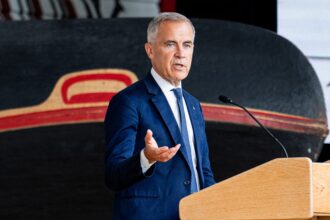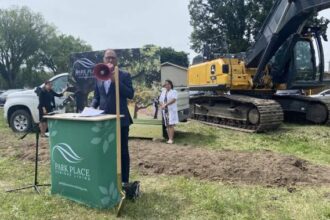In a significant shift toward more accessible healthcare in New Brunswick, the province’s expansion of family health teams is showing promising results for thousands of residents previously stranded without consistent medical care. The strategic transition from traditional solo practices to collaborative healthcare teams has connected over 15,000 New Brunswickers with primary care providers since last spring, offering a potential blueprint for addressing Canada’s pervasive doctor shortage crisis.
“We’re witnessing a fundamental restructuring of primary care delivery that prioritizes patient access while creating more sustainable working conditions for healthcare professionals,” said Dr. Mark Dornan, chair of the New Brunswick Medical Society’s Family Medicine Council. The innovative approach integrates physicians with nurse practitioners, registered nurses, and other allied health professionals under collaborative practice arrangements that maximize each provider’s scope of practice.
The province reports that 21 family health teams are now operational, with 58 physicians and 53 nurse practitioners working in tandem to extend coverage and reduce individual provider burdens. This integrated model appears to be addressing the troubling statistics that had nearly 74,000 New Brunswickers registered on the Patient Connect NB waiting list for primary care as recently as January.
Provincial Health Minister Bruce Fitch attributes the initiative’s success to a deliberate focus on team-based care. “Family health teams create environments where healthcare professionals can work more efficiently while sharing the responsibility of patient care,” Fitch explained during a press conference in Fredericton. “We’re seeing physicians who previously limited their practices now accepting new patients because the team structure makes their workload manageable.”
The transformation follows significant physician recruitment challenges that have plagued not only New Brunswick but much of Canada. The collaborative model appears particularly effective at attracting younger physicians seeking work-life balance while retaining experienced doctors who might otherwise consider early retirement.
Evidence suggests that patients are experiencing tangible benefits beyond simple attachment to a provider. Early data indicates improved chronic disease management, more comprehensive preventive care, and reduced emergency department visits for non-urgent issues. “Patients with diabetes are receiving more consistent monitoring, while those with multiple health conditions benefit from coordinated care across the team,” noted Nathalie Boivin, a nurse practitioner with the Bathurst Family Health Team.
The province has committed $16.1 million to expand the program further, aiming to establish additional family health teams in underserved communities across New Brunswick. Health authorities report particular success in rural areas where physician recruitment has traditionally been most challenging.
Some challenges remain, particularly around electronic medical record integration and developing consistent protocols across different practice sites. “We’re still working through the growing pains of combining different professional cultures and practice styles,” admitted Dr. Jennifer Russell, New Brunswick’s chief medical officer of health. “But the willingness to collaborate for better patient outcomes is evident across all teams.”
The New Brunswick experience offers potential lessons for other provinces grappling with similar healthcare access issues. As primary care continues evolving across Canada, the family health team model provides a compelling case study in healthcare delivery innovation.
As this healthcare transformation continues unfolding across the province, a critical question emerges: Could New Brunswick’s family health team expansion represent the future standard for sustainable primary care delivery across Canada, or will unique regional healthcare needs require more tailored approaches to solving the national doctor shortage crisis?














